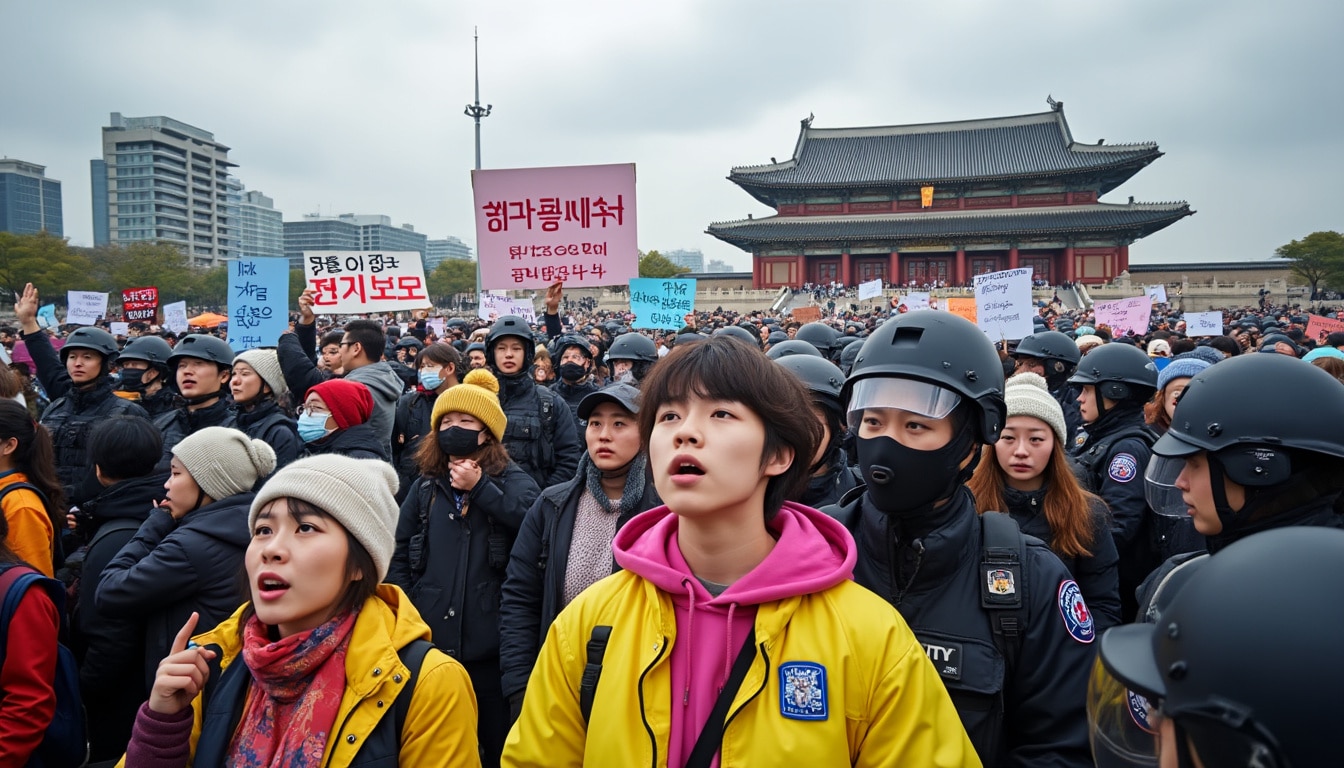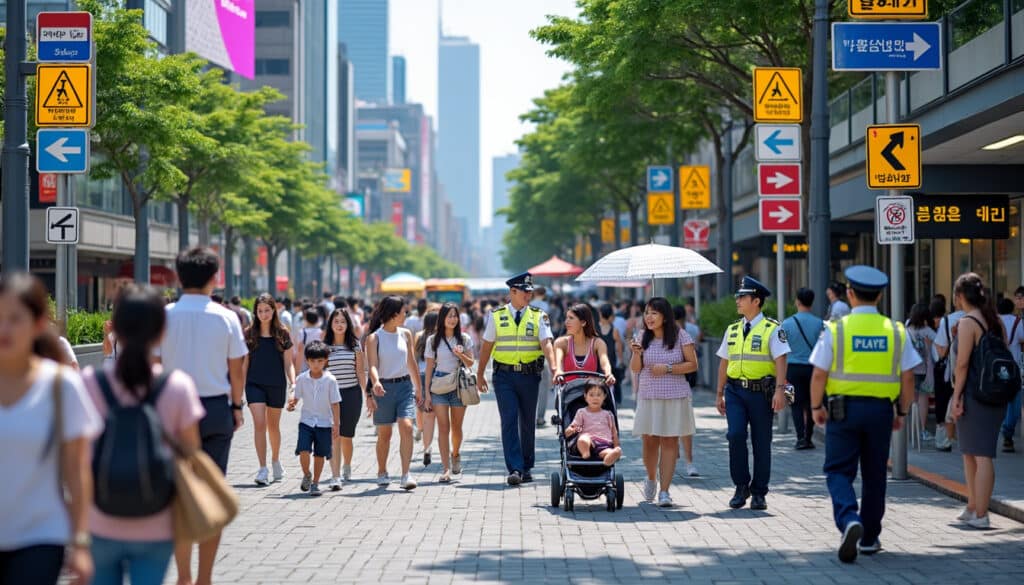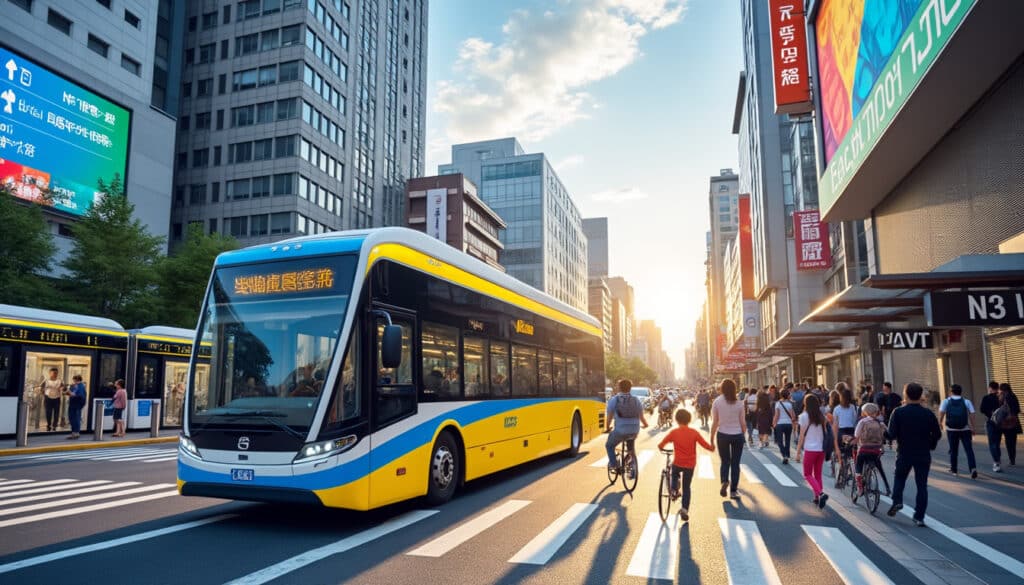The bustling streets of Seoul have recently become the stage for significant social tensions and public discontent. The capital of South Korea is witnessing a powerful wave of protests that reflect deep-seated issues within the country’s political landscape. As the Constitutional Court prepares to make a significant ruling on the future of impeached President Yoon Suk Yeol, emotions run high. From cries demanding justice to chants for reinstatement, the atmosphere in Seoul is charged with anticipation, posing a fascinating case study for observers around the globe. Here’s a detailed exploration of the layers of unrest that have gripped this vibrant city, the role of social movements, and the shaping of Korean society and politics in 2025.
The Complex Dynamics of Protests in Seoul
Seoul, a city known for its dynamic culture and rich history, has become the focal point of numerous protests. These demonstrations are more than just reactions to political events; they are symptomatic of deeper societal issues. To understand the ongoing protests, one must grasp the intricate social fabric of the city and the country at large.
At the core of these protests is the recent impeachment of President Yoon Suk Yeol. Yoon’s controversial declaration of martial law, followed by his suspension and eventual arrest on insurrection charges, has sparked widespread outrage. The case, pending a final ruling from the Constitutional Court, has divided the nation. This division is vividly on display as hundreds of thousands of citizens, both for and against Yoon, take to the streets of Seoul every weekend.
The police, under the leadership of acting chief Lee Ho-young, have declared the situation “more grave than ever.” With a deployment of over 14,000 riot police, the government is keen on preventing the protests from escalating into violence. Such preparations underscore the persistent threat of unrest, a reality that foreign embassies have also acknowledged by advising their citizens to avoid protest areas.
The Role of Social Movements in Seoul’s Protests
The rise of social movements like Democracy Now!, Amnesty International, and Human Rights Watch has been pivotal in shaping the current socio-political landscape. These organizations, along with local groups such as Social Justice Korea and Civil Society Organizations, have provided a platform for citizens to voice their grievances. Through peaceful assemblies, they highlight the importance of freedom of expression and the necessity of addressing social injustices.
- 🗣️ Freedom of Expression: The right to voice one’s opinion is fundamental, and protests in Seoul exemplify this principle.
- ✊ Peaceful Assembly: Demonstrations are an essential means for citizens to express dissent without resorting to violence.
- 🌍 Global Solidarity: International attention from groups like Amnesty International boosts the visibility of local struggles.
Among the various protests, the younger generation stands out. Students like Seo Hee-jin from Seoul Women’s University are vocal about issues such as tuition increases, economic instability, and unemployment. Their involvement signifies a shift towards more engaged and politically active youth, determined to bring about change.
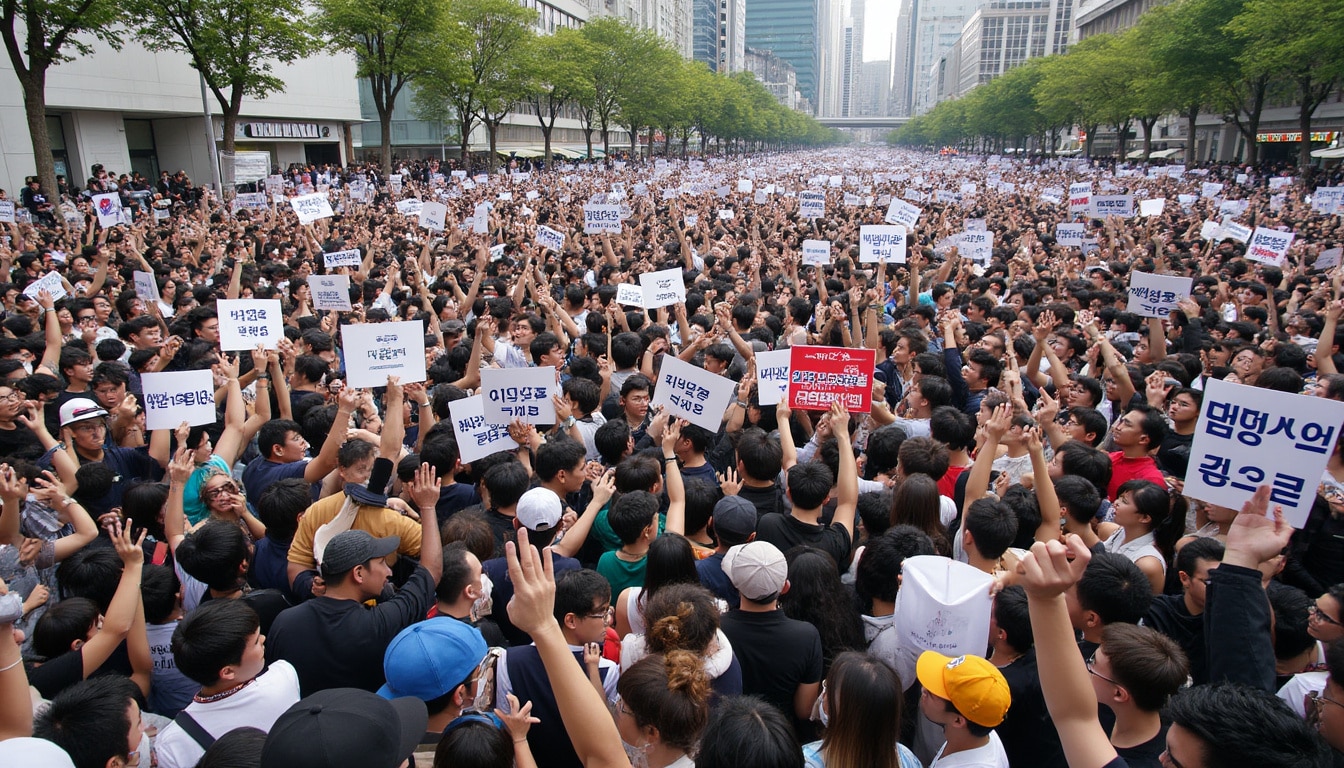
As Seoul grapples with these societal challenges, one cannot ignore the influence of globally recognized movements and how they inspire local activism. South Korean citizens are inspired to take action, knowing they are part of a larger, interconnected struggle for justice and equity.
The Impact of Protests on Tourism and Local Businesses in Seoul
Seoul’s reputation as a tourist destination with vibrant markets and historical palaces is facing new challenges due to the protests. The Korean Heritage Service announced closures of major tourist attractions like the Gyeongbok and Changdeok palaces on ruled verdict days, impacting both the tourism industry and local businesses.
Safety concerns have led to more than a dozen schools and several shops in nearby neighborhoods closing. The uncertainty connected with the protests has led to a notable decline in tourist arrivals, directly affecting the local economy.
| 🔍 Impact Area | 🚶 Public Avoidance | 📉 Economic Effect |
|---|---|---|
| Tourist Sites | Reduction in visitors due to protest-related closures | Loss of revenue for local vendors and guides |
| Retail Businesses | Decreased foot traffic in central areas | Declining sales impacting small business sustainability |
| Education | Schools shutting on key protest days | Disruption in learning affecting students’ academic progress |
In response, businesses are exploring ways to adapt, implementing online platforms to sustain operations. The local tourism board, acknowledging world interest in the Korean Wave, continues to promote safe areas and digital cultural experiences.
The ongoing protests, while challenging, offer an opportunity for Seoul to emerge stronger and more resilient. By fostering dialogue and collaboration between the government, businesses, and civil society, the capital can pave the way for sustainable growth and social stability.
Socio-Political Implications of Seoul’s Protests
The implications of the protests in Seoul extend beyond their immediate effects, potentially affecting South Korea’s political trajectory. The tension highlights the underlying currents within the nation’s democratic processes, revealing citizens’ desires for significant reform.
The leadership of Seoul, including acting President Han Duck-soo, emphasizes the importance of calm and rational discourse amid heightened tensions. He calls for prioritizing community stability over political gains, especially as the risk of illegal or violent protests looms large.
Democracy and Civil Engagement Amidst Unrest
Seoul’s protests serve as a reminder of the importance of democratic engagement and the role of citizens in shaping their governance. Groups like K-Activism emphasize the need for accountability and transparency, urging leaders to listen to public demands genuinely.
- 📢 Engaged Citizenship: Citizens actively participating in political processes demonstrate the vitality of democracy.
- 📈 Transparency: Calls for open governance highlight the public’s demand for transparency.
- 🤝 Dialogue: Ongoing conversations between protest groups and authorities encourage mutual understanding.
The reality of potential elections, should Yoon Suk Yeol be permanently removed from office, intensifies these dynamics. Speculation mounts over possible candidates and the future political landscape, with citizens eagerly anticipating the potential for change.
As South Korea navigates these turbulent waters, the protests border on becoming a catalyst for transformation. They exemplify the power of collective action and civil engagement in fortifying democratic structures.
The Future of Social Movements in Seoul
Looking forward, the landscape of social movements in Seoul is likely to evolve, reflecting the growing importance of activism in South Korean society. The recent protests highlight an increasing trend of citizen engagement and advocacy for social justice, signifying a shift towards a more participatory democracy.
Technological advancements also play a vital role. Platforms like YouTube and social media continue to amplify voices, galvanizing support and organizing movements. The overwhelming presence of YouTubers and live streamers at protests underscores new media’s burgeoning influence.
| 🖥️ Technology | 📊 Impact on Movements |
|---|---|
| Social Media | Facilitates organization and spread of information |
| Live Streaming | Increases awareness and engagement in real-time |
| Digital Platforms | Expands reach and influence of advocacy groups |
Cultural elements, such as the Korean Wave, tie strongly into this framework. The worldwide appeal of South Korean culture not only draws international attention but also intertwines social movements with cultural influence. It’s a new era where Seoul’s activism reflects broader themes of global networking and solidarity.
In this light, the future of protests and social movements in Seoul stands poised at an exciting crossroads. The momentum generated by current events may very well shape the city’s societal and political landscape for years to come.
FAQ on Seoul’s Protests and Social Unrest
Q1: What sparked the recent protests in Seoul?
The protests were initiated by the impeachment of President Yoon Suk Yeol, following his controversial declaration of martial law.
Q2: How are protests impacting daily life in Seoul?
Protests have led to disruptions, including the closure of schools, shops, and tourist sites, as well as increased police presence to manage crowds.
Q3: What organizations are involved in the protests?
Various local and international organizations like Democracy Now!, Amnesty International, and Social Justice Korea are participating in the protests.
Q4: Are the protests affecting tourism in Seoul?
Yes, the protests have negatively influenced tourism, with major attractions closed on key protest days and caution advised by embassies.
Q5: What is the expected outcome of the protests?
The protests are likely to influence political discourse, emphasizing the need for reform and greater transparency in governance.
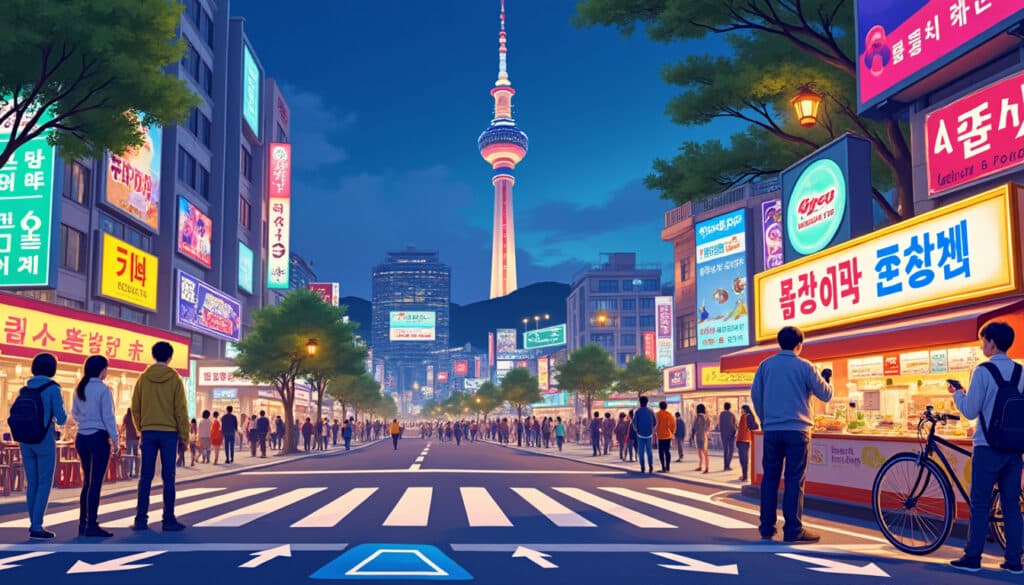
Seoul, a city where ancient traditions blend effortlessly with ultramodern innovation, offers a plethora of attractions waiting to be explored. From vibrant shopping districts to historic temples, Seoul is a destination rich with culture and excitement. However, as with visiting…
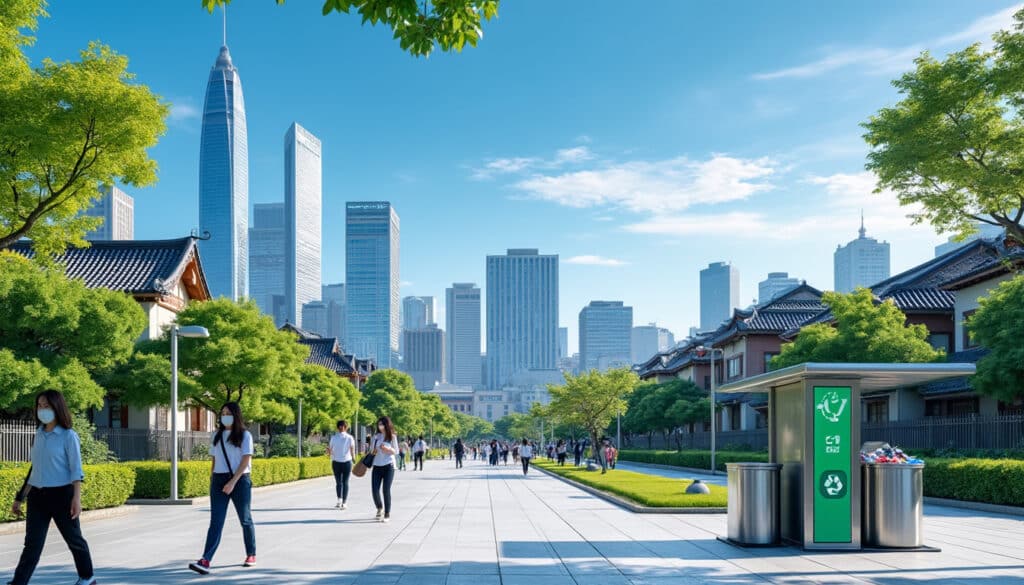
Cleanliness and hygiene in Seoul
Seoul, the bustling capital of South Korea, is not only known for its vibrant cultural scene and technological advancements, but also for its commendable standards of cleanliness and hygiene. Whether wandering through its well-maintained streets or visiting its modern facilities,…
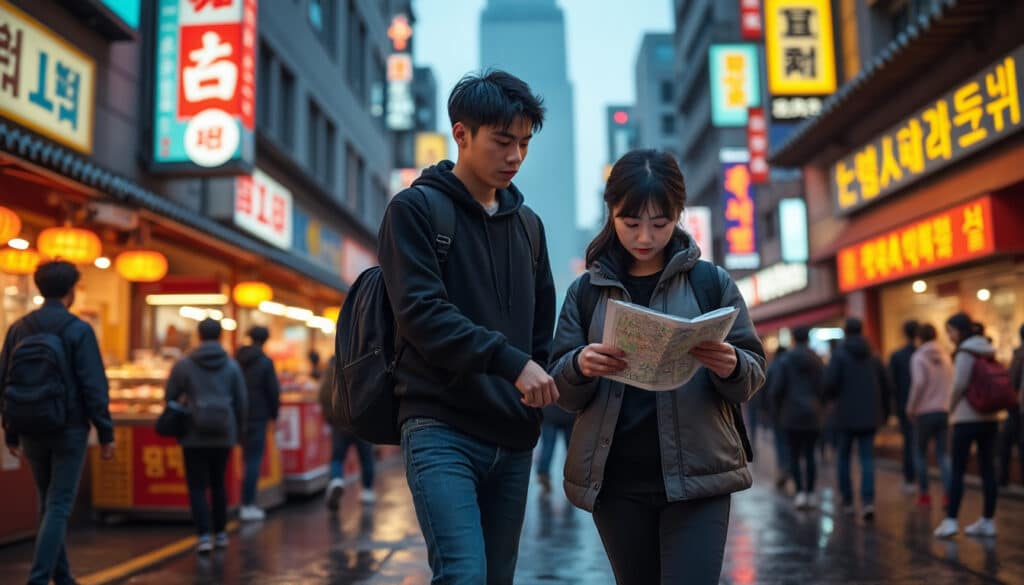
Pickpocketing and theft in Seoul
Seoul, the bustling capital of South Korea, is a melting pot of tradition and modernity, where ancient palaces coexist with towering skyscrapers. But like any major city, Seoul has its challenges, including the issue of pickpocketing and petty theft. As…
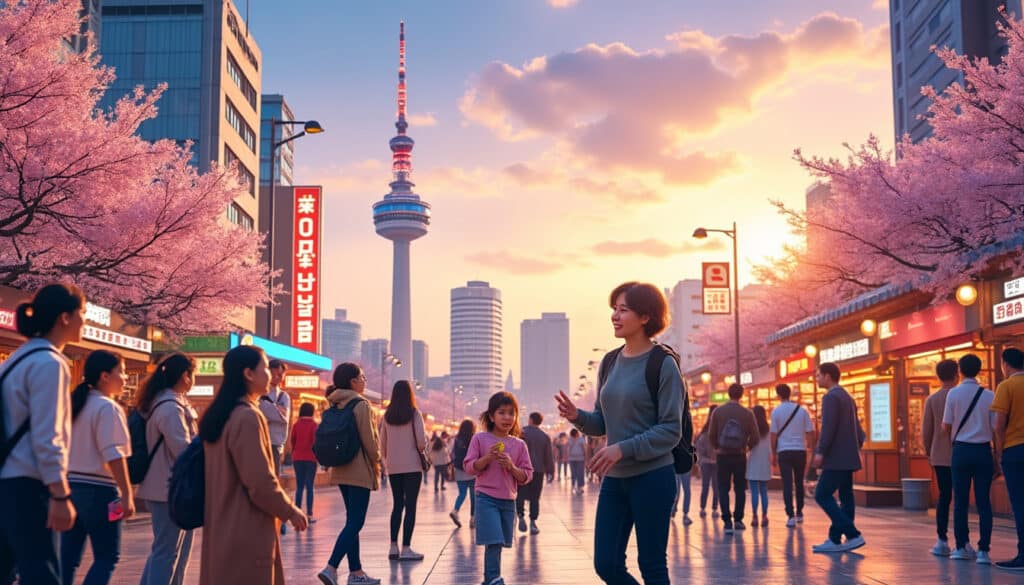
Safety in Seoul for travelers from different countries
Seoul, the vibrant heart of South Korea, is a city that seamlessly blends rich history with cutting-edge technology. For those planning a visit, understanding the city’s safety dynamics is crucial. With questions often arising about political tensions, crime rates, and…

